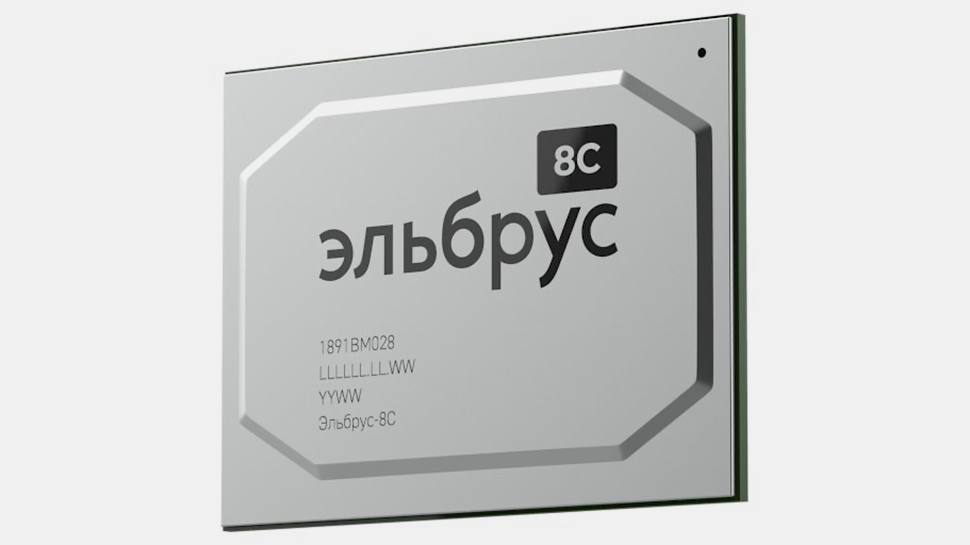tl;dr: Intel and AMD are not selling their processors to Russia, and processors from Russian companies cannot be manufactured as Taiwan is banning TSMC from doing so, while Russia can only produce chips up to a 90 nm process.
First, Russia is able to produce their own domestic chips, second Russia can import chips from CSMC which is in China and doesn’t care about US sanctions one bit. What I’m reading here is that Chinese foundries just got a big new market opened up to them without any competition.
Novliberalisma imperioj ĵetas sian piedojn.
The article mentioned Russia’s domestic production. It said their domestic factories can only produce 90nm chips, which is believable.
As far as the latter part of what you said is concerned, that was my same takeaway. China proper is the second most advanced manufacturer of transistors and has good trade relations with Russia; to the extent that their earlier declaration of friendship read more like a marriage declaration. These western sanctions only amount to Chinese protectionism. Its a huge boon to Chinese and Russian technological development and cooperation.
First, producing silicone monocrystals does not equal the ability to produce modern chips. The only somewhat significant semiconductor producer from Russia, Mikron Group, announced in 2020 that they would start using the 65nm process, a process that has been available since 2005.
So the biggest domestic manufacturer is 15-20 years behind the West and mainland Chinese manufacturers have a global market share of 8% compared to Taiwan’s 66% (and American lap dog Korea with 17%).
Sorry to break it to you buddy but its not looking good for the Russians
You don’t need modern chips for military purposes, which is the part that really needs to be domestic. Even US military uses chips that are decades old because they’re considered reliable. Meanwhile, China will happily sell chips for the consumer market. China just invested 143 billion into ramping up domestic chips production, and if you think they’re 15-20 years behind you’re living in a fantasy land. So, not really sure what specifically you think isn’t looking good for Russians here.
Meanwhile, US trying to keep China from catching up in chip tech has been an unmitigated disaster. As one of the founding fathers of America’s semiconductor industry so eloquently put it: "The US government is run by idiots who don’t understand the industry”.
And a few more articles for you to sober up on:
- https://asiatimes.com/2022/12/us-chip-war-hitting-allies-and-missing-china/
- https://archive.ph/6Br0R
- https://www.reuters.com/technology/exclusive-nvidia-offers-new-advanced-chip-china-that-meets-us-export-controls-2022-11-08/
- https://archive.ph/6gtxw
- https://asiatimes.com/2022/11/us-godfather-makes-a-chip-offer-you-cant-understand/
- https://www.eurasiareview.com/26112022-the-us-chip-blockade-against-china-is-creating-unplanned-consequences-oped/
- https://archive.ph/7a1Wx
Never claimed that the Chinese are that far behind but they just don’t have the same production capabilities as Taiwan or Korea. That might change in a few years tho.
And I guess losing access to modern production facilities in Taiwan ain’t no biggie for the Russians as they plan to produce their own 28nm chips by 2030 (28nm was introduced in 2011 btw) so maybe I’ll game on a Russian CPU by 2055 lol.
2005 makes me think of the first dual cores. They were simply great for anything, from cad to games, enough for any user with some kind of functional brain. Nobody really needs 8k displays on 6" to see shitty series and we won’t go anywhere in the space thanks to chipsets, probably some other technology will be much more useful. I was also surprised by longsoon risc-v CPU, they will be more than enough for consumers. And regarding military equipment, start thinking of a society without military ‘departments’
Removed by mod
What are you talking about?
Removed by mod
Ah, got it. Thanks!
Lol, you’re right. This news is terribly irrelevant for an article published last week. Why even write it? Western nations have been suffering from a chip shortage for over a year and are rushing to establish domestic production. This feels like more displacement. Taiwan is the most advanced manufacturer of transistors, but China proper is the second most advanced manufacturer; considering Taiwan is recognized as a province of China and the separatist lost the recent elections, the west is in serious trouble rather than Russia. Russia never de-industrialized, and the core of Russia’s industrial base is under central control; while the US has de-industrialized, and it’s only means of central control is bribing it’s capitalist base, which is more interested in banking fraud than production.
Is this related to China also limiting cpus to Russia? I read something about that earlier this week.
China isn’t limiting CPU sales to Russia. The article that’s been going around talks about China restricting foreign sales of a particular type of chip, and that has nothing to do with Russia.
thank you for the info. The article I said highlighted it as a potential point of conflict with Russia but I’m not deeply into that subject so I don’t really know.
China isn’t sanctioning Russia in any way; moreover, at the start of the war Chinese companies stepped in to alleviate some of the worst setbacks of Western sanctions. I think it’s fair to say that Russia would be in a far less favorable position without the support China has shown. I wouldn’t expect that situation to change any time soon. There’s always an innuendo of some brewing conflict between the two, but it’s just wishful thinking on the part of the authors.







